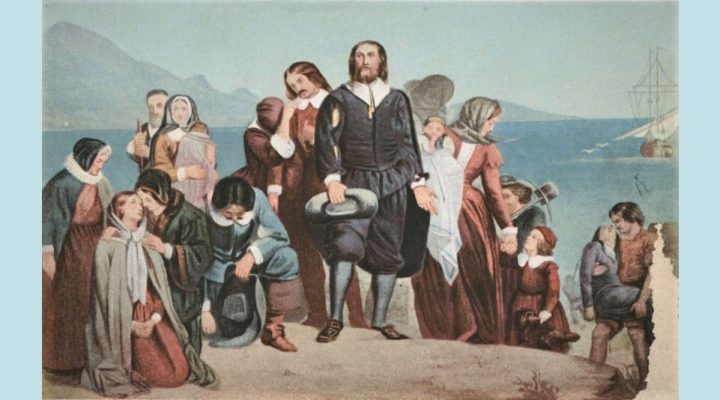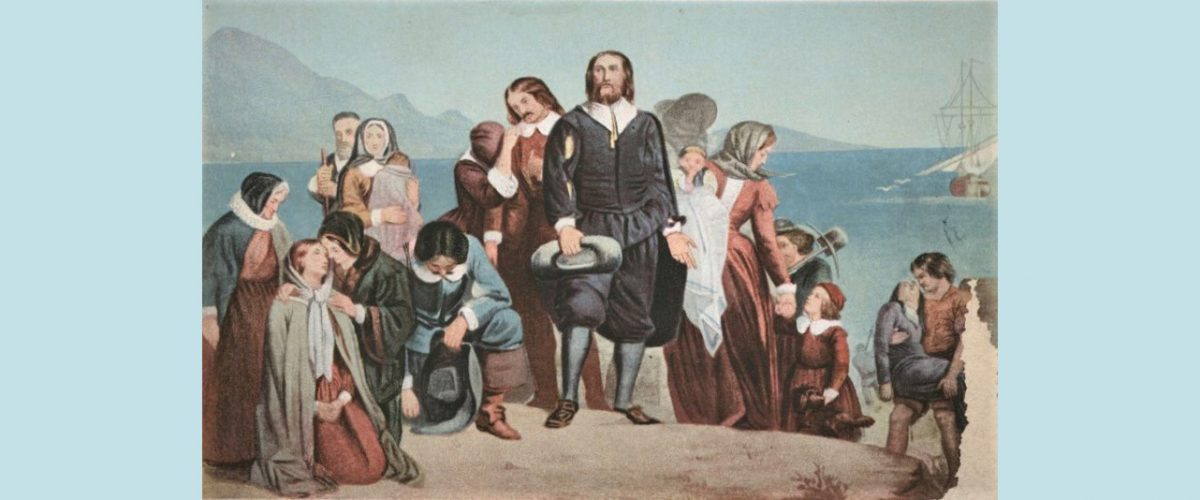Modern American Christian nationalists stand apart from their predecessors who at least claimed some degree of respect for religious freedom and other values enshrined in the U.S. Constitution, a religion scholar said.
Catherine Brekus, professor of the history of religion in America at Harvard Divinity School, gave the Walter B. and Kay W. Shurden Lecture on Religious Liberty and Separation of Church and State. The annual lecture is sponsored by Baptist Joint Committee for Religious Liberty.
This year’s lecture was presented at Old North Church in Boston, the site where Paul Revere hung two lanterns to warn of approaching British forces at the beginning of the American Revolutionary War.
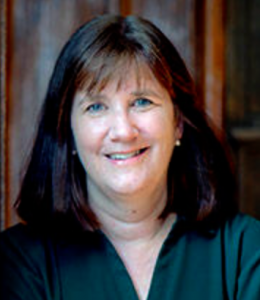
Catherine Brekus
“There is a significant difference between the 18th century and the present,” Brekus said. “The white Christian nationalists who supported the American Revolution were tainted by their racism and their refusal to extend political rights to women, but they defended the principle of democracy, even if it was only partially fulfilled as a positive good.”
“Today, however, white Christian nationalists are so convinced they have been called to uphold the nation’s special covenant with God that they have been willing to dismantle the legacy of the American Revolution, including the separation of church and state, to preserve their political dominance. Many are no longer committed to the core principles of democracy. White Christian nationalists believe they must protect the nation, which they see as sacred, from the government, which they argue has become corrupt.”
In her lecture titled “The Myth of American ‘Chosenness,’” Brekus traced the development of white Christian nationalism from Puritan leader John Winthrop’s 1630 “city on a hill” sermon to its inspiration of the MAGA movement in the 21st century.
She also illustrated how a grandiose and self-serving interpretation of the book of Exodus has been used to legitimize oppression since Colonial times.
“The British were the Egyptians and Native Americans were the Canaanites. Patriots justified their treatment of the original inhabitants of the land by remembering God’s biblical command to destroy the people of Canaan,” she said.
By the 1830s, white Southerners were using the same rationale to defend chattel slavery, Brekus said. “The Rev. Thornton Stringfellow, for example, a Baptist, reasoned that since God had shown favor to biblical patriarchs like Abraham and Isaac, who had been slave owners, then Southern planters could be confident that God favored them, as well.”
“American slavery was supposedly part of God’s providential plan to spread spiritual freedom around the world.”
Stringfellow also proclaimed that slavery was full of mercy. If not for slavery, he argued, millions of Africans would never have been exposed to Christianity and their souls would have been damned. American slavery was supposedly part of God’s providential plan to spread spiritual freedom around the world.”
But it was Protestantism, specifically, that the early Christian nationalists had in mind, she said. “Most Americans in the 18th century were Protestants, and despite their support of religious freedom, they assumed they would always enjoy a privileged place in the republic. Even the Baptists, avid supporters of the separation of church and state, supported reading the King James Version of the Bible in public schools. In 1844, Robert Baird, a Presbyterian minister, argued that God had delayed the discovery of the new world until the era of the Protestant Reformation because of his providential plan to transform America into a great Protestant empire.”
That worldview also motivated much of the anti-Catholic and anti-Jewish sentiment and violence of the 19th century, she continued. “Lyman Beecher, one of the most influential ministers in antebellum United States and the father of Harriet Beecher Stowe … suggested that the mass influx of Catholic immigrants, whom he compared to the locusts of Egypt, might be secretly plotting to seize control of the United States government and to create a Catholic nation ruled by the pope.”
Jews fared little better under that conception, she said. “During the late 19th and early 20th centuries, it was common for Jews to be depicted as covetous, dishonest and un-American,” and industrialist Henry Ford famously warned about an “international cabal of Jews” intent on destroying white Protestant America.
“One of the greatest ironies in American history,” Brekus added, was that many Jews and Catholics were gradually subsumed under the “Judeo-Christian” concept that emerged in response to rising secularism in the late 19th century. “Despite their struggle for full acceptance in the United States, Catholics and Jews eventually embraced the belief in American ‘chosenness’ as their own.”
And they weren’t alone, with many marginalized groups demanding freedom as a means of fulfilling America’s “chosenness,” she said. “Throughout American history, many who have been deprived of equality, especially enslaved people and women of all races, have demanded greater rights by appealing to the nation’s God-given destiny.”
“Throughout American history, many who have been deprived of equality, especially enslaved people and women of all races, have demanded greater rights by appealing to the nation’s God-given destiny.”
Brekus cited slave author Phyllis Wheatley, who in 1774 chided the hypocrisy of slave-holding whites who complained of slavery-by-taxation under the British. Slaves and Native Americans, she said, were actually the biblical Israelites oppressed by Americans in the role of Egyptian oppressors.
“Yet, despite her anger at Americans’ failure to live up to their own ideals, Wheatley also affirmed that ultimately God had destined the United States to be a beacon of freedom,” Brekus said. “Like white patriots, Wheatley portrayed the nation as an agent of God, but she insisted that the United States could not fulfill its God-given destiny until it abolished slavery. Later in the 19th century, both white and African American women would make a similar argument in reference to women’s suffrage.”
Martin Luther King Jr. also appealed to the nation’s ordination to argue for racial justice. “In contrast to the Ku Klux Klan, who argued that God wanted America to be a white nation, King insisted God had chosen America to be a model of racial reconciliation and equality. … King’s language reveals that, historically, the belief in American ‘chosenness’ has been widely shared by Americans with competing visions of the nation.”
While the concept also has been used by politicians like Barack Obama, Hillary Clinton and Joe Biden, Brekus said conservatives have been more successful rallying support for their causes around “chosenness” and the threat of God’s punishment initially raised by Winthrop.
“They have spent the past 40 years claiming God is angry with the nation because of a multitude of sins: secularism, gay rights, feminism and, more recently, Critical Race Theory and the catchall category of wokeness. … This is one of the reasons they have responded so fervently to the slogan ‘Make America Great Again.’”
Demographics have been another driver of Christian nationalism as the U.S. becomes decreasingly white and Christian, she said. “Underlying the anger of white Christian conservatives is a deep sense of loss.”
But the ideology isn’t much healthier when embraced by left-leaning political and religious leaders, the professor added. “Even in its most progressive forms, American Christian nationalism is built on ideas that too often have been used to justify imperialism and xenophobia.”
“I have sometimes feared … the entire Christian tradition has been sullied by its association with the ugliness we see on our landscape today.”
Brekus concluded by urging people of faith to stand up against white Christian nationalism.
“Those of us who identify as Christian have a particular responsibility to explain to the public why white Christian nationalists do not speak for us,” she said. “I have sometimes feared, and I know I’m not alone in this, that the entire Christian tradition has been sullied by its association with the ugliness we see on our landscape today.”
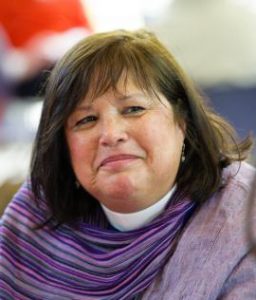
Carol Gallagher
During a panel discussion after the lecture, Carol Gallagher, assistant bishop of the Episcopal Diocese of Massachusetts and a member of the Cherokee Nation, said Native Americans typically haven’t embraced the “chosenness” concept.
“As an indigenous person, it’s very hard to hear that phrase without understanding the price that was paid not only in lives, but land and people taken by disease. Even until the 20th century, native folks didn’t get the right to vote until long after women got the right to vote. Up until the past 30 or 40 years, indigenous tribes have not even had the ability or autonomy to control their own lives and their own destiny.”
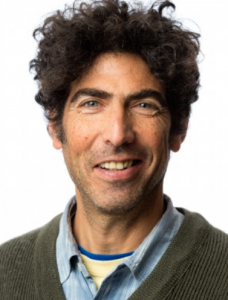
Michael Hoberman
Panelist Michael Hoberman, professor of American literature at Fitchburg State University in Massachusetts, said 19th century Jews in the South were known to embrace the belief in America’s divine calling, while those in the Northern states mostly rejected the idea of white Americans as the freed slaves in the Exodus story. But he added that Jews generally share a cautious view of being chosen.
“To be chosen is not necessarily to be in a good position in the world, in the first place,” said Hoberman, who teaches and writes on Jewish and African American literature. “This concept of Jews as the chosen people, to me it’s always felt like much more of a burden and a liability than anything else.”
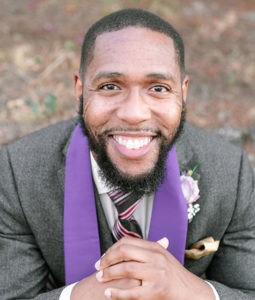
Darrell Hamilton
As a Black Christian, Darrell Hamilton said the myth of America’s “chosenness” reminds him he is barred from that special status despite its basis on the Exodus text that tells the story of African people in an African setting.
“My skin is weaponized against me and keeps me being able to be included within the myth, within the story of America, when the reality is you can’t even have America without my story,” said Hamilton, administrative pastor at the First Baptist Church in Jamaica Plain in Boston and a member of the board of the Alliance of Baptists.

